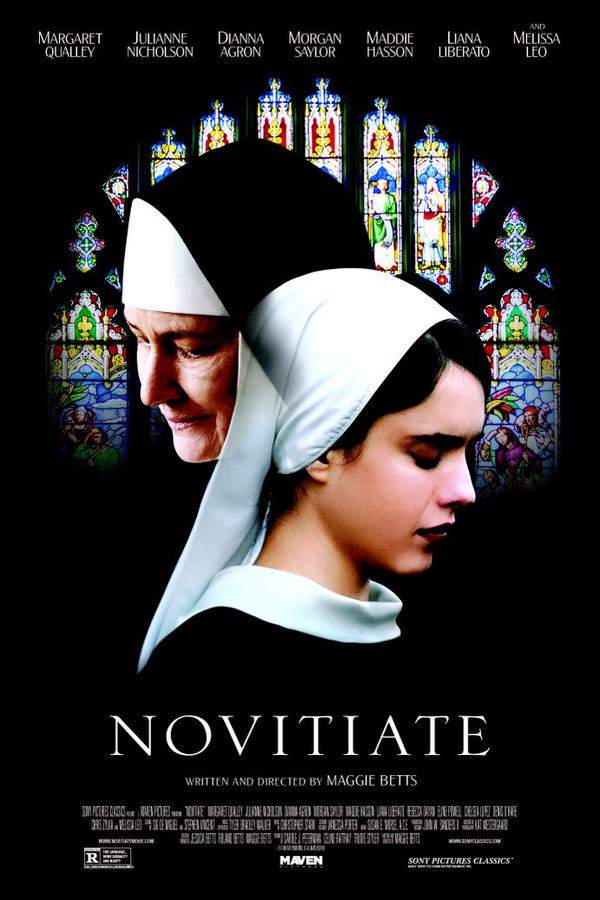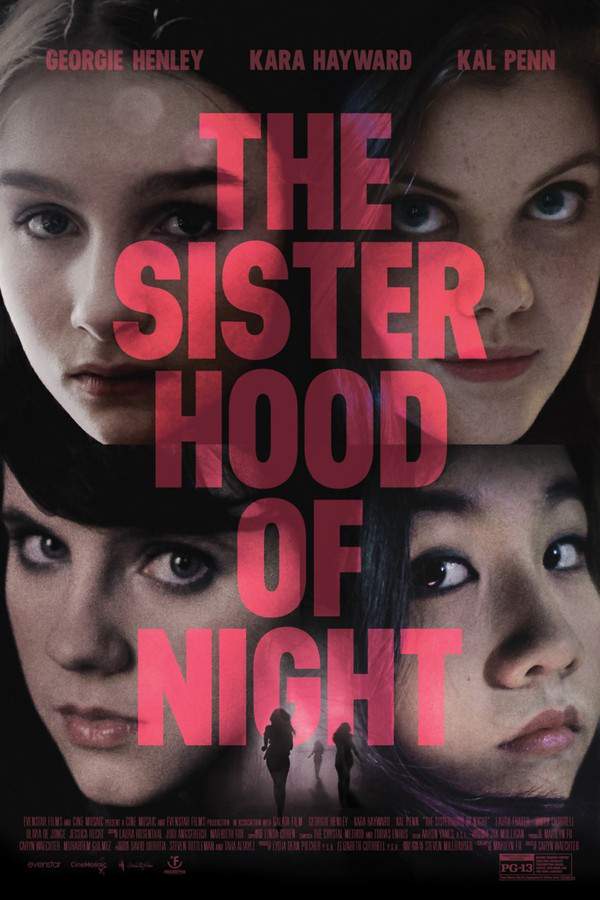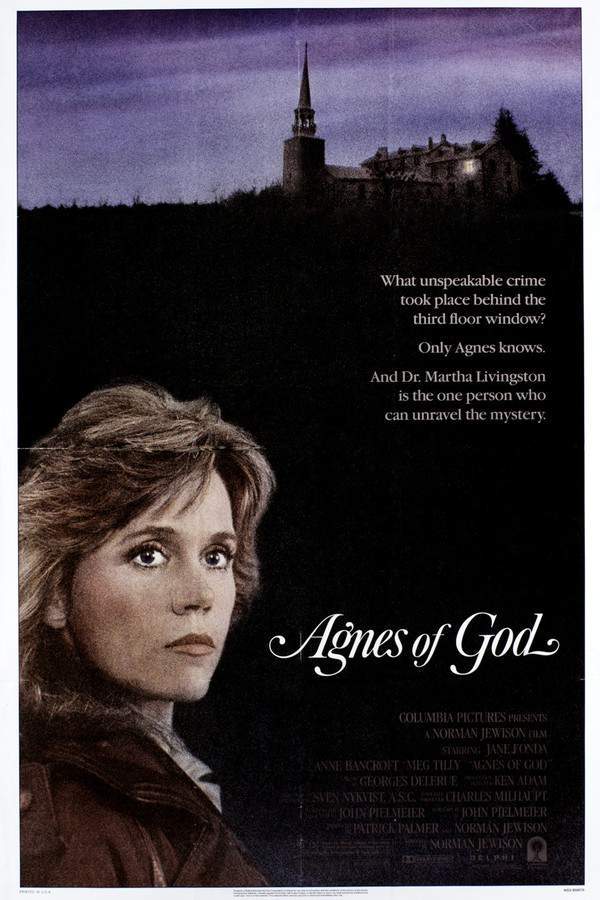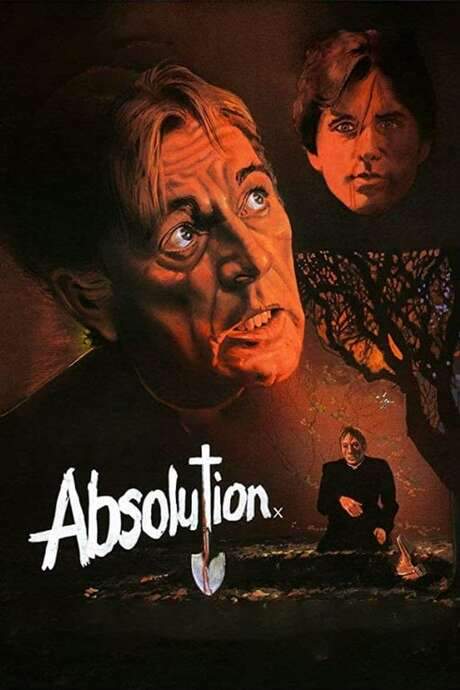
Doubt 2008
Directed by

John Patrick Shanley
Made by

Miramax Films
Test your knowledge of Doubt with our quiz!
Doubt Plot Summary
Read the complete plot summary and ending explained for Doubt (2008). From turning points to emotional moments, uncover what really happened and why it matters.
The film Doubt unfolds against the backdrop of a working-class Irish/Italian Catholic neighborhood in the Bronx, New York, during the year 1964. The narrative begins with tranquil scenes that introduce us to a church garden, adorned with statues of saints and angels, and features a Russian immigrant, who plays a zither. We meet young Jimmy (Lloyd Clay Brown), who is awakened by his mother for Sunday mass, making a hasty exit as he races out of the house. En route to church, he passes the Russian man who inquires about a paper and coffee, yet Jimmy cannot afford to stop since he is already late for his duties as an altar boy, presumably on his first day serving mass.
Upon arriving at the church, Jimmy hastily changes into his cassock, preparing the essential elements for the mass including wine, water, and incense. Soon after, another altar boy named Donald Miller (Joseph Foster) arrives. As the first black student at the parochial school, Donald expresses his body insecurities by asking Jimmy if he thinks he is overweight. While Jimmy dismissively reassures him, we see Donald grappling with self-image issues, which highlight his isolation within the students.
In the sacristy, Father Flynn, portrayed by Philip Seymour Hoffman, conducts the mass before a full congregation. During his sermon, he reflects upon the tragic assassination of President Kennedy the prior year, noting the shared grief that ultimately unites people in times of despair, underscoring the idea that they are all “in this together.” His compelling words resonate deeply, inviting the audience to ponder their own crises of faith and the universal nature of doubt.
Among the attendees is Sister James (Amy Adams), a novice nun clad in traditional habit, who is closely engaged in Flynn’s message. As Father Flynn spins a narrative about a man lost at sea amidst a fire on his cargo ship, the film subtly cuts to the back of the church where Sister Aloysius Bouvier (Meryl Streep), the stern principal, discreetly observes the children, ready to enforce discipline as needed. Her strict demeanor is underscored when she rises to reprimand a child for misbehavior, revealing her role as an enforcer of order within the school.
As the storyline progresses, the film delves into the daily lives of the nuns and the students, intertwining their narratives with themes of vigilance and authority. Sister Aloysius becomes increasingly suspicious of Flynn, especially regarding Donald, whom she views as vulnerable. A series of dinner scenes among the nuns juxtaposes their rigid adherence to rules against the more jovial and relatable nature of Flynn, creating an atmosphere thick with tension.
Sister Aloysius’ suspicions deepen when she learns about Donald’s uncharacteristic behavior following his private chats with Father Flynn. The whispers of potential misconduct in Flynn’s interactions with Donald loom large over the narrative, leading Aloysius to investigate further. She and Sister James engage in conversations filled with veiled implications, speculating over parental concerns regarding Flynn’s influence over Donald.
The climax builds as Aloysius forces a confrontation with Flynn, embodying the struggle between authority and vulnerability, fear and courage. Their exchanges are layered with tension as Flynn attempts to defend his actions while Aloysius remains steadfast in her pursuit of the truth. The screenplay expertly navigates complex themes of morality, faith, and the vulnerability of youth within the walls of an institution that is meant to protect them.
As the story unfolds, it is revealed that Aloysius has taken it upon herself to protect her students, but at a significant personal cost. The narrative culminates in a heart-wrenching exploration of doubt. In a moment of introspection, Aloysius admits, “I have doubts, such doubts,” evoking feelings of uncertainty that resonate with the audience long after the credits roll.
Ultimately, Doubt captivates viewers through its rich character development, thought-provoking themes, and an intense examination of human nature under the lens of faith and morality. It raises pertinent questions about the responsibility of those in power, the fragility of trust, and the complex nature of truth.
Doubt Timeline
Follow the complete movie timeline of Doubt (2008) with every major event in chronological order. Great for understanding complex plots and story progression.
Introduction to the Bronx
The film opens in a working-class Irish/Italian Catholic neighborhood in the Bronx, New York, circa 1964. The viewers are introduced to the setting through a series of establishing shots featuring a quiet church garden, statues, and daily life activities among the residents.
Jimmy's First Day as Altar Boy
A young boy named Jimmy is awakened by his mother for Sunday mass, signifying his first day as an altar boy. In his rush, he encounters a Russian immigrant asking for a paper and coffee, but he cannot stop to chat because he is late.
Father Flynn's Sermon
During mass, Father Flynn delivers a sermon reflecting on the assassination of President Kennedy and its unifying effects amidst despair. His words resonate deeply within the packed congregation, as he discusses the crises of faith everyone experiences.
Introduction of Donald Miller
Donald Miller, the first black student at the school, also serves as an altar boy and shares a moment of self-doubt with Jimmy. This interaction highlights the racial and social dynamics at play, with Donald expressing concern over his appearance.
Sister Aloysius's Watchful Eye
Following the sermon, Sister Aloysius, the principal, sternly monitors the children and enforces discipline. She reprimands a student for misbehavior, establishing her authoritative presence and strict moral code within the school environment.
Sister James's Classroom Dynamics
In the classroom, Sister James struggles to manage her students, facing distractions and finding trouble with contraband items. Her interactions with Sister Aloysius reveal the underlying tension between the nuns regarding teaching methods and discipline.
Concern Over Donald
Sister Aloysius expresses concern for Donald after noticing he seemed strange following a meeting with Father Flynn. Aloysius emphasizes the importance of vigilance, suggesting that Donald may be target to more sinister behavior due to his vulnerability as the only black student.
Aloysius's Investigation Begins
After speaking with Sister James about her concerns, Aloysius begins a covert investigation against Flynn, suspecting inappropriate behavior with Donald. She articulates her mission to uncover the truth while maintaining her authority over the school's moral obligations.
Flynn's Defense
Father Flynn defends his approach to teaching and his compassion towards Donald, arguing for the importance of kindness in a time of change. He attempts to create an environment where students feel understood and valued, conflicting with Aloysius’s strict measures.
The Confrontation
Aloysius confronts Flynn about her suspicions of him manipulating Donald. The tension escalates as she presses him for answers regarding his intentions, while Flynn denies any wrongdoing and questions her motives, emphasizing his genuine concern for the boy.
Flynn's Farewell Sermon
Following the mounting tensions, Father Flynn delivers a farewell sermon, framing his departure as a poignant moment. He speaks of the winds of change and expresses his affection for the community, leaving emotional responses from both students and staff.
Aloysius's Torn Conscience
After Flynn's departure, Sister Aloysius grapples with her moral choices and feelings of guilt. She reflects on the validity of her actions and the cost of protecting the parish's boys compared to the truth she cannot definitively prove.
Sister James's Doubts
Sister James returns and discusses the ramifications of Flynn's exit with Aloysius. Doubts about whether the right decisions were made begin to cloud her judgment, as she struggles to reconcile her faith with the uncertainty of the situation.
Consequences of Actions
Aloysius learns that rather than facing consequences for his alleged actions, Flynn has been promoted to a larger parish. This news shocks her, highlighting the systemic issues present within the church and leaving her feeling insulated in her moral certainty.
Final Reflection
In a poignant closure, Aloysius breaks down, revealing she has doubts about the morality of her actions. This moment encapsulates the central theme of the film, focusing on faith, morality, and the gray areas in between that leave both characters and audiences questioning the truth.
Doubt Characters
Explore all characters from Doubt (2008). Get detailed profiles with their roles, arcs, and key relationships explained.
Sister Aloysius Bouvier (Meryl Streep)
Sister Aloysius is a staunch, authoritative figure serving as the principal of St. Nicholas' School. She exudes a sense of duty and moral righteousness, fiercely protective of her students. Aloysius becomes suspicious of Father Flynn and believes his intentions are not as pure as they appear, showcasing her relentless pursuit of what she believes is right.
Father Flynn (Philip Seymour Hoffman)
Father Flynn is a charismatic and modern priest who connects well with the students. However, his amicable demeanor raises doubts in Sister Aloysius, who suspects him of inappropriate behavior towards Donald. Flynn's character explores themes of charm versus underlying motives, leaving viewers to question his true nature.
Sister James (Amy Adams)
Sister James is a young, impressionable nun who teaches the eighth grade and represents a bridge between the old and new ways of thought within the church. Caught between Sister Aloysius's suspicions and Father Flynn's charm, she experiences internal conflict, showcasing her compassion for the students while grappling with authority.
Donald Miller (Joseph Foster)
Donald Miller is the first black student at St. Nicholas' School, feeling isolated and vulnerable in his environment. His character symbolizes the innocence of childhood and the vulnerability that comes with being different. The attention he receives from Father Flynn raises intense discussions about protection versus exploitation.
Doubt Settings
Learn where and when Doubt (2008) takes place. Explore the film’s settings, era, and how they shape the narrative.
Time period
1964
The movie takes place in 1964, a year marked by significant social and political changes in America. This period followed the tragic assassination of President John F. Kennedy, which left the nation in mourning and brought people together in shared grief, reflecting the themes of faith and doubt explored in the film.
Location
Bronx, N.Y.
The Bronx, a borough of New York City, is known for its rich cultural heritage and diversity. In 1964, it was home to many working-class families, particularly from Irish and Italian backgrounds, providing a strong community and a backdrop for the film's events centered around a Catholic school.
Doubt Themes
Discover the main themes in Doubt (2008). Analyze the deeper meanings, emotional layers, and social commentary behind the film.
🕊️
Faith vs. Doubt
The central theme of 'Doubt' revolves around the struggle between faith and doubt, particularly in a religious context. Characters grapple with their beliefs, morality, and the fear of evil within trusted figures. The tension between Sister Aloysius's suspicion and Father Flynn's demeanor encapsulates this conflict.
⚖️
Justice
The quest for justice is a driving force in the narrative, highlighted by Sister Aloysius's determination to uncover the truth about Flynn's actions. The film raises questions about moral righteousness, the power dynamics within the church, and the consequences of making accusations without definitive proof.
✋
Power and Authority
The film explores themes of power and authority, particularly within the context of the Catholic Church. Sister Aloysius embodies strict discipline and control, while Father Flynn represents a more modern, relatable approach to teaching. Their conflicting styles raise questions about leadership and its impact on trust and safety in the school.

Coming soon on iOS and Android
The Plot Explained Mobile App
From blockbusters to hidden gems — dive into movie stories anytime, anywhere. Save your favorites, discover plots faster, and never miss a twist again.
Sign up to be the first to know when we launch. Your email stays private — always.
Doubt Spoiler-Free Summary
Discover the spoiler-free summary of Doubt (2008). Get a concise overview without any spoilers.
In the summer of 1964, the modest St. Nicholas School sits on the edge of a bustling Bronx neighborhood, its red‑brick façade echoing the rhythms of a tight‑knit Irish‑Italian Catholic community. The world beyond the schoolyard is one of post‑war optimism tinged with the uneasy undercurrents of social change, a place where Sunday masses, street vendors, and the distant hum of a city in transition mingle. The film’s tone is quiet yet taut, a slow‑burning drama that lets the weight of routine reveal the fragile certainty of faith.
Father Flynn arrives at the school with a charismatic, progressive spirit, his sermons weaving contemporary concerns into timeless prayers. His plainspoken charm and willingness to question long‑standing customs set him apart from the more traditional figures who dominate the parish, creating a subtle friction that pulses beneath everyday interactions. Across the hallway, Sister Aloysius Beauvier presides with stern authority, her disciplined presence a counterpoint to Flynn’s gentle provocations. Her devotion to order and protection of the school’s children gives her a resolve that feels both reassuring and formidable.
The arrival of Donald Miller, the institution’s first black student, adds another layer to the delicate balance. His quiet uncertainty and the curiosity he sparks among classmates underscore the broader societal shifts beginning to ripple through the neighborhood. Meanwhile, Sister James, a novice nun still learning the contours of her vocation, watches the unfolding dynamics with earnest concern, her youthful idealism lighting the corridors of the otherwise austere convent. Their intersecting perspectives create a tapestry of doubt and conviction, each character navigating personal belief against the backdrop of a community in flux.
As the school year progresses, the interplay of authority, compassion, and emerging social consciousness fuels an undercurrent of tension. The setting—a modest church garden, cramped classrooms, and the ever‑present incense of the sacristy—beckons the audience to linger, listening for the quiet questions that linger in the spaces between prayers and policies.
Can’t find your movie? Request a summary here.
Movies with Similar Twists and Themes
Uncover films that echo the narrative beats, emotional arcs, or dramatic twists of the one you're exploring. These recommendations are handpicked based on story depth, thematic resonance, and spoiler-worthy moments — perfect for fans who crave more of the same intrigue.
Featured on this page

What's After the Movie?
Not sure whether to stay after the credits? Find out!
Explore Our Movie Platform
New Movie Releases (2025)
Famous Movie Actors
Top Film Production Studios
Movie Plot Summaries & Endings
Major Movie Awards & Winners
Best Concert Films & Music Documentaries
Movie Collections and Curated Lists
© 2025 What's After the Movie. All rights reserved.











